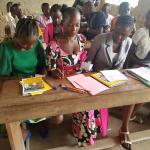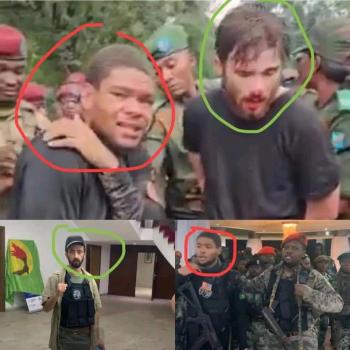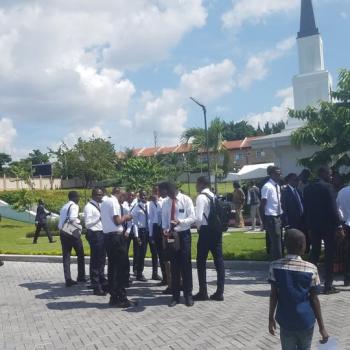“We’re in a moral vacuum.”
The place is Lodja, Democratic Republic of Congo. There are no paved roads and few cars. People walk or take motorcycles or bicycles to get from one place to another. Banana trees, papaya trees, avocado trees, mango trees abound, and the pineapples are twice the size of anything I’ve seen in the USA. The priest is Abbe Veron Okavo, a strong Congolese man who seems sometimes burdened and at other times so full of joy that he can’t resist dancing.
“The youth lack vision,” he says. “They demand money, but they don’t work.”
“That’s a problem everywhere,“ I answer.
We come to a home where several women leap from their work to greet the priest. He introduces me, and I say the Tetala phrase he has taught me: “Moy-oh.” Hello.
After we leave, Abbe Veron tells me that the shy one is an orphan. Her parents died of CIDA. He arranged for her education. I will later learn that he has taken in hundreds of orphans and provided for their education. I don’t know how many, but I’m told—by others, and particularly by the orphans themselves—that the number is beyond what I might imagine.
He tells me about the horrors of the “Congo War” when refugees, militia, or makeshift armies from Rwanda and Uganda invaded all the big cities in Kasai Oriental, including Lodja. Members of “Those who kill in groups” terrorists invaded and plundered homes, killed thousands, raped the women. “You will see my sister’s house,” he says. “They took that over.” The war lasted from 1998-2000. 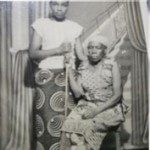
He tells me about the atrocities, and I walk silently, absorbing it as much as I can. I have already learned that silence is a recognized language in Lodja, so there’s no awkwardness.
In my elementary French, I manage to communicate my question: “Those boys who committed such horrors—are they ever able to become human again?”
He doesn’t answer for awhile, and then shakes his head. “Those who have gone that far? Those ones? I haven’t seen much change.”
His sister’s home sits before a field of grass, where a few goats graze and wild chickens peck at the earth. The sister is queenly, dressed (as am I) in a black, orange and green caftan. Her arms open wide and we greet each other with the traditional three kisses—right cheek, left cheek, right cheek. It turns out that we both are named Margaret. She is older than I by less than a year.
Abbe Veron and I eat fufu, rice, greens, and fresh papaya. I continue contemplating the long road I have walked with this righteous man, and the stories I have heard.
“You’re a priest,” I say. “I know that confession is a personal thing, and that you take it seriously. If someone who had done such horrifying things were to confess them to you, what would you say?”
Now he is silent.
“Confession,” he says, “is about mercy. Some who confess have been holding onto secrets for years. My job is to tell them about God’s mercy, to comfort them, to help them move beyond their secrets.” It’s all about claiming the future.
Later, Abbe Veron takes me to the big project: the university. This is his solution to the horrors of the past and the indolence of the present. It will include dormitories for those who live far away. The seven offices will have computers. There will be fifty classrooms, as well as a large auditorium for plays and presentations.
This is where the generation whose parents lost family and hope will re-cast the future. This is where Abbe Veron Okavu will teach the fundamentals of morality which were so brutally betrayed and uprooted during the war years.
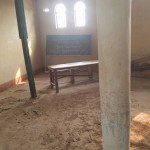
(End of part 1)




